It is true that currently (as of Xcode 7), XCTestCase methods are run in alphabetical order, so you can force an order for them by naming them cleverly. However, this is an implementation detail and seems like it could change.
A (hopefully) less fragile way to do this is to override +[XCTestCase testInvocations] and return your own NSInvocation objects in the order you want the tests run.
Something like:
+ (NSArray *)testInvocations
{
NSArray *selectorStrings = @[@"testFirstThing",
@"testSecondThing",
@"testAnotherThing",
@"testLastThing"];
NSMutableArray *result = [NSMutableArray array];
for (NSString *selectorString in selectorStrings) {
SEL selector = NSSelectorFromString(selectorString);
NSMethodSignature *methodSignature = [self instanceMethodSignatureForSelector:selector];
NSInvocation *invocation = [NSInvocation invocationWithMethodSignature:methodSignature];
invocation.selector = selector;
[result addObject:invocation];
}
return result;
}
Of course, the downside here is that you have to manually add each test method to this instead of them being picked up automatically. There are a few ways to improve this situation. If you only need to order some of your test methods, not all of them, in your override of +testInvocations, you could call through to super, filter out those methods that you've manually ordered, then tack the rest on to the end of the array you return. If you need to order all the test methods, you could still get the result of calling through to super and verify that all of the automatically picked up methods are covered by your manually created, ordered result. If not, you could assert, causing a failure if you've forgotten to add any methods.
I'm leaving aside the discussion of whether it's "correct" to write tests that must run in a certain order. I think there are rare scenarios where that makes sense, but others may disagree.
